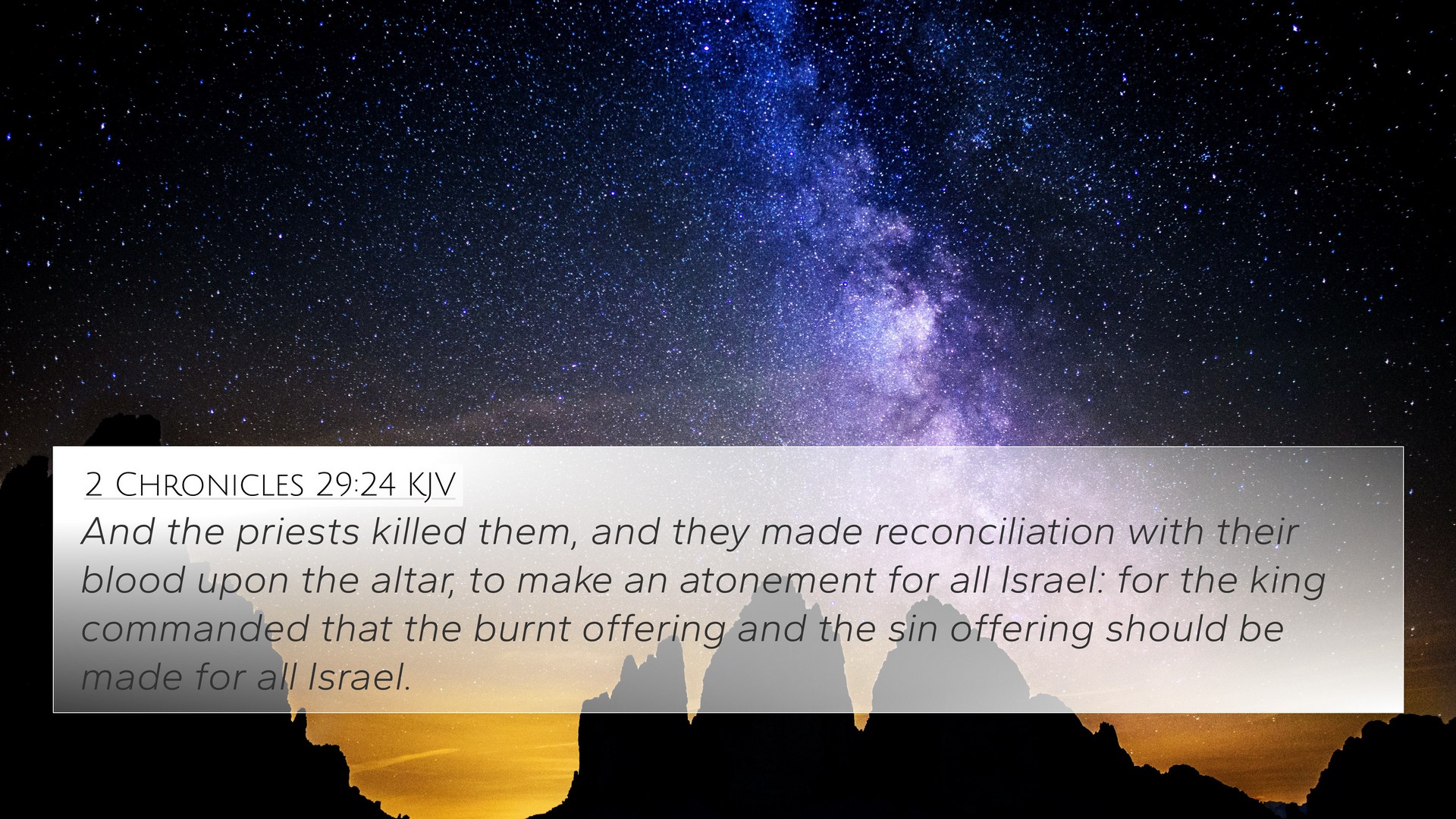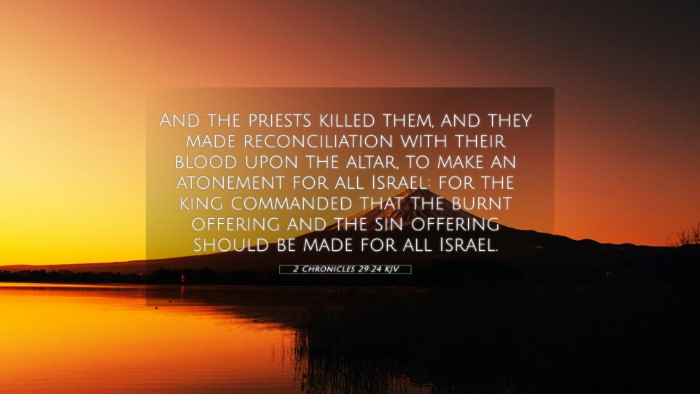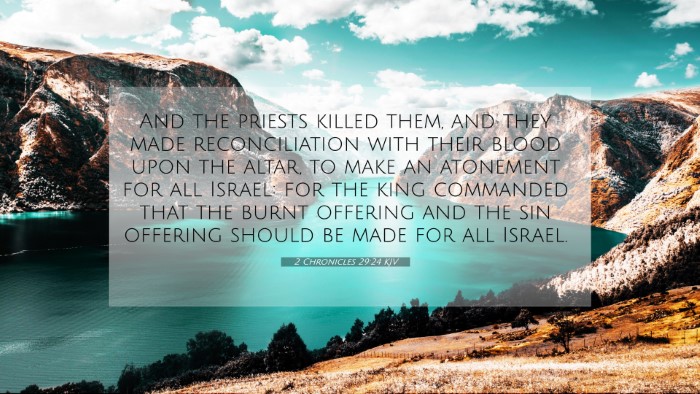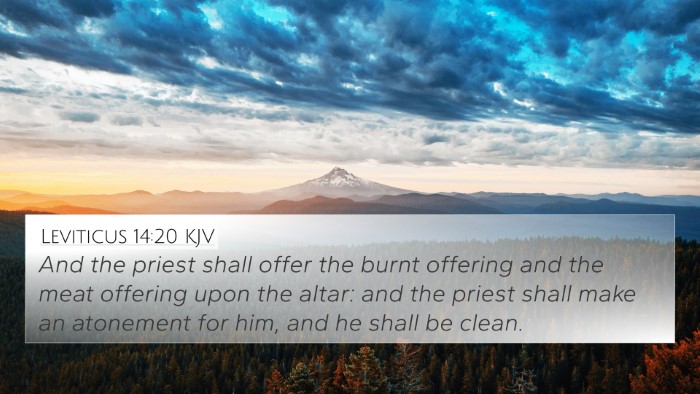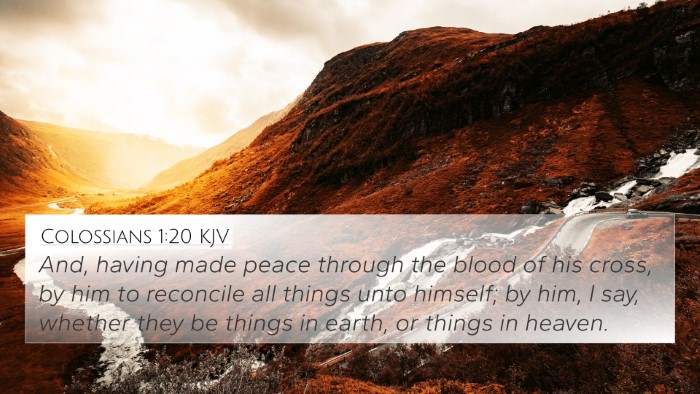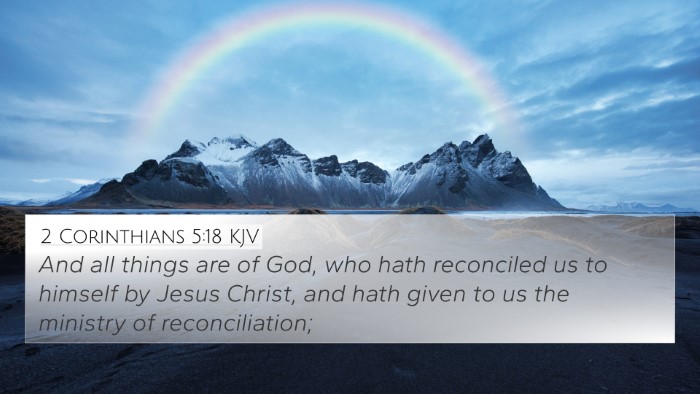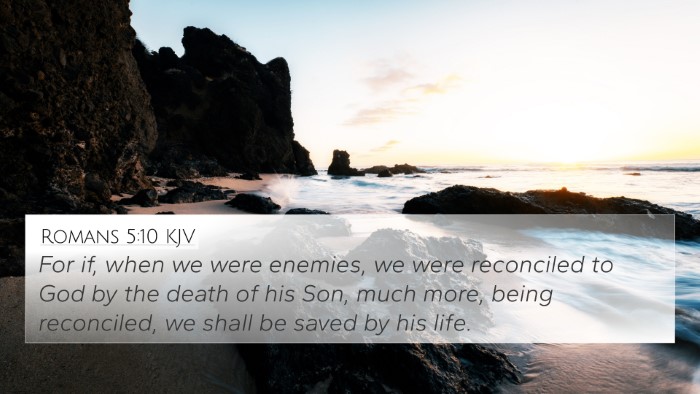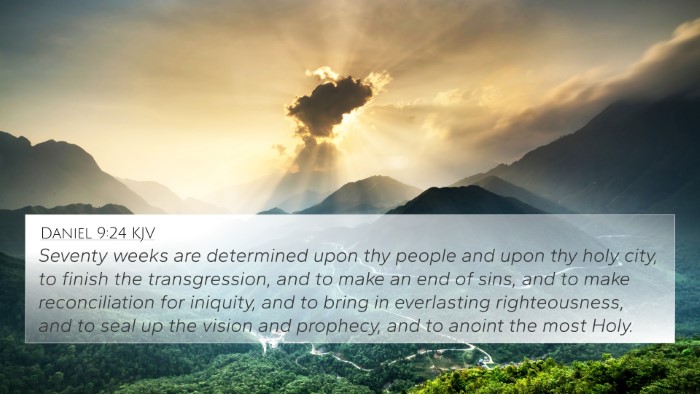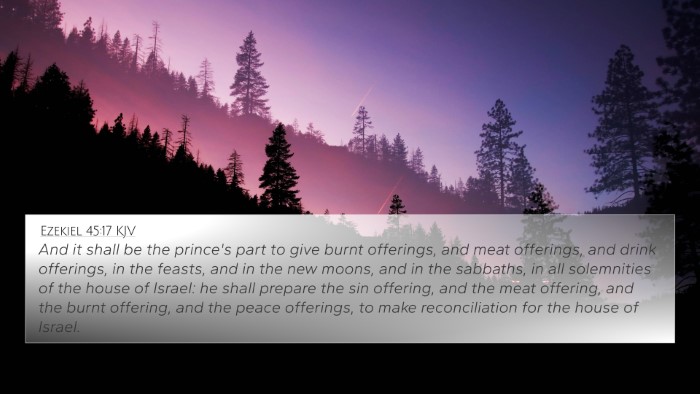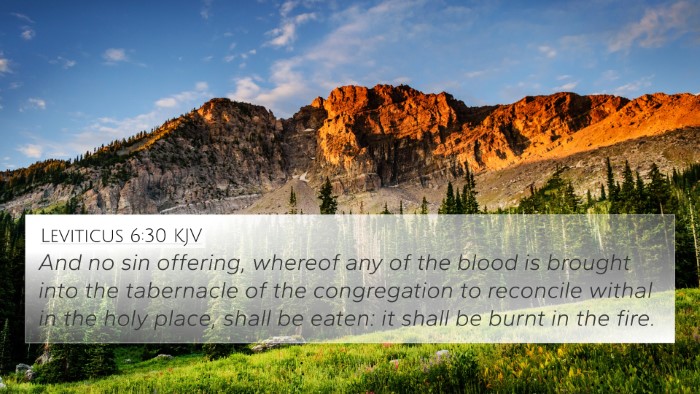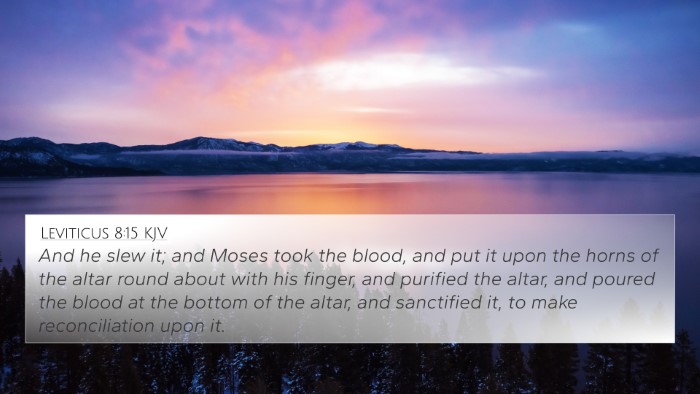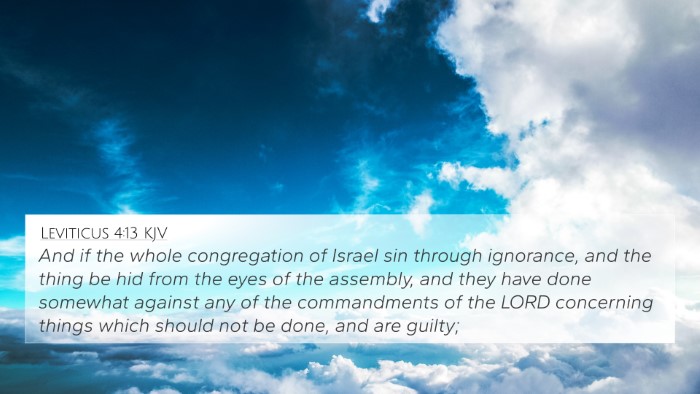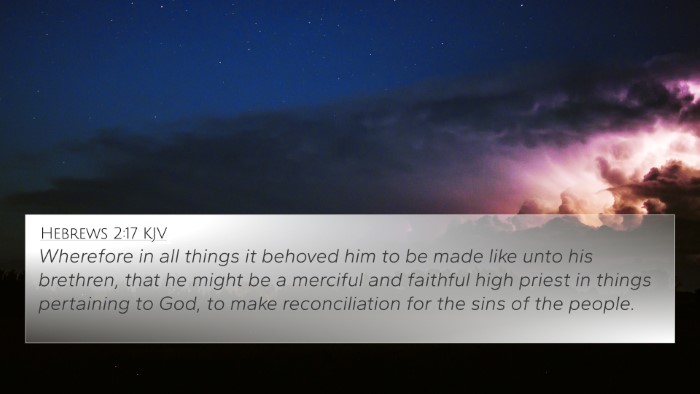Understanding 2 Chronicles 29:24: A Comprehensive Analysis
2 Chronicles 29:24 discusses a pivotal moment in the reign of King Hezekiah, where offerings are made for sin, emphasizing the importance of atonement and the priestly role in mediating between the people and God. This verse reads: "And the priests killed them, and they made reconciliation with their blood upon the altar, to make an atonement for all Israel: for the king commanded that the burnt offering and the sin offering should be made for all Israel." This text opens the door to thematic connections concerning atonement, sacrifice, and intercession in the Bible.
Key Themes in 2 Chronicles 29:24
- Atonement: The concept of atonement is crucial in this passage, representing the need for reconciliation between humanity and God.
- Priestly Mediation: The role of the priests in offering sacrifices is emphasized, showcasing their function as intermediaries in the covenant relationship with God.
- National Repentance: King Hezekiah's command illustrates the collective effort in restoring the nation's relationship with God after periods of idolatry and neglect.
Bible Verse Cross-References
To enrich understanding, the following Bible verse cross-references invite deeper exploration:
- Leviticus 4:20: Concerning the sacrifices for sin, this verse ties into the sacrificial system laid out in the Law.
- Exodus 30:10: Discusses the annual atonement made by the priest, linking to the concept of collective repentance.
- Hebrews 9:22: Highlights that without the shedding of blood, there is no forgiveness, connecting to the idea of sacrificial atonement.
- Isaiah 53:5: Illustrates the suffering servant and His role in bringing healing and atonement for sin.
- 1 John 1:7: Refers to the cleansing of sins through the blood of Christ, emphasizing the ongoing need for reconciliation.
- Romans 5:9: Speaks to being justified by Jesus' blood, providing a New Testament perspective on atonement.
- Colossians 1:20: Discusses reconciliation through the blood of Christ, paralleling the sacrificial atonement seen in 2 Chronicles.
Thematic Connections
This verse serves as a nexus for several significant themes within the broader biblical narrative:
- Historical Context: Understanding the historical context of Hezekiah's reforms gives insight into national repentance themes. The king’s efforts to restore the temple and proper worship create a backdrop for understanding sin and forgiveness.
- Jesus as the Ultimate Sacrifice: The sacrificial system described in the Old Testament is ultimately fulfilled in Christ, providing a direct theological connection for readers of the New Testament.
- Communal vs. Individual Responsibility: The sacrifices made for "all Israel" invite reflection on the balance between corporate worship and personal faith.
Comparative Bible Verse Analysis
In analyzing 2 Chronicles 29:24 alongside other passages, one can explore:
- Exodus 12:13: The blood on the doorposts during Passover foreshadows the sacrificial system of atonement that 2 Chronicles reaffirms.
- Psalm 51:17: "The sacrifices of God are a broken spirit; a broken and contrite heart." This connection emphasizes internal, heartfelt repentance beyond mere ritual.
- Luke 22:20: Jesus institutionalizing the New Covenant with His blood links directly back to the sacrificial language seen in Chronicles.
Tools for Bible Cross-Referencing
To garner deeper insights into scripture, consider utilizing various tools for Bible cross-referencing:
- Bible Concordance: A useful index for exploring word and theme connections throughout scripture.
- Bible Cross-Reference Guide: Helpful in identifying parallel verses across both Testaments.
- Bible Reference Resources: Resources that offer context and interpretation for various passages.
Application and Reflection
The implications of 2 Chronicles 29:24 encourage modern readers to reflect on:
- The Personal Need for Atonement: This passage prompts a reflection on individual sin and the need for reconciliation with God.
- Community and Worship: The collective nature of worship and repentance represented here is a challenge for today’s believers to engage in communal spiritual practices.
- Understanding Christ's Role: Recognizing the continuity between the Old and New Testaments enhances comprehension of Jesus' sacrificial love.
Conclusion
In 2 Chronicles 29:24, we uncover essential themes of atonement, priestly mediation, and the importance of collective repentance. Through thorough cross-referencing and thematic study, this verse not only stands in its historical context but also resonates with profound New Testament truths. Engaging with these connections enriches the understanding of God's redemptive plan as woven throughout scripture.
